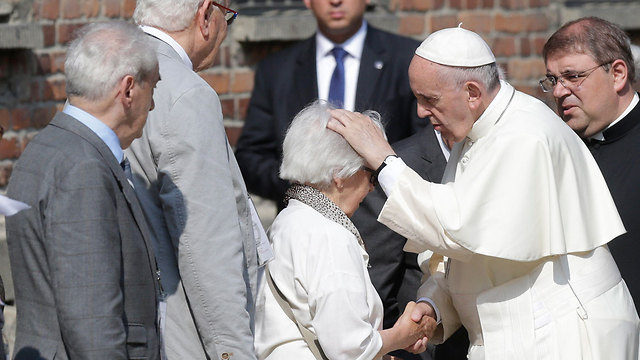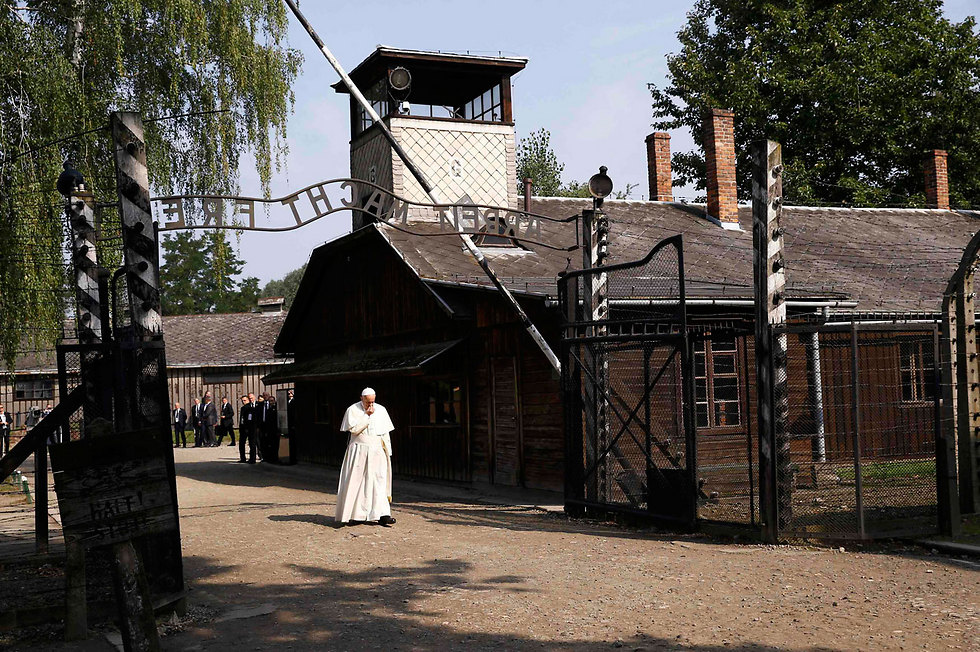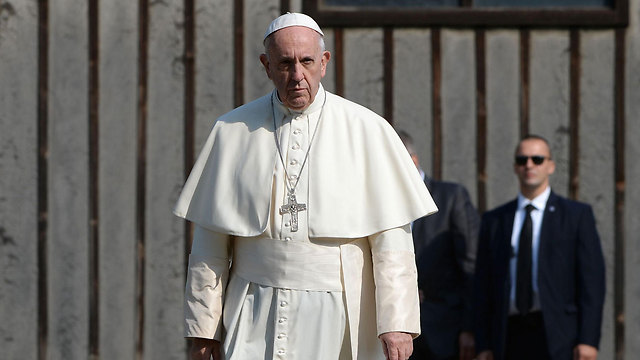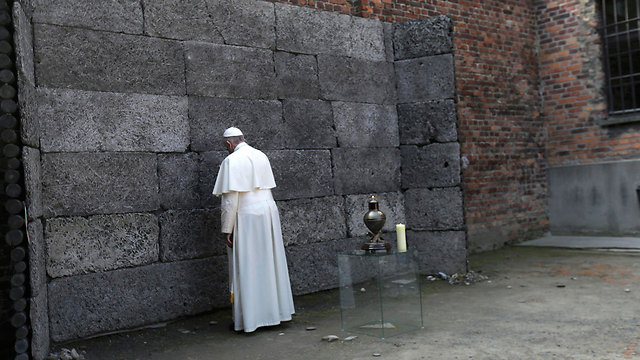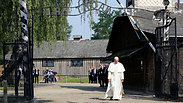
Pope visits Auschwitz, 3rd pope to do so
Francis has visited the Nazi death camp of Auschwitz-Birkenau; as an Argentine he is the first pope to visit who did not himself live himself through the brutality of World War II on Europe's soil; Pope meets with survivors.
OSWIECIM, Poland - Pope Francis paid a somber visit to the Nazi death camp of Auschwitz-Birkenau Friday, becoming the third consecutive pontiff to make the pilgrimage to the place where Adolf Hitler's forces killed more than 1 million people, most of them Jews.
Francis entered the camp on foot, walking slowly beneath the notorious gate at Auschwitz bearing the cynical words "Arbeit Macht Frei."
After Auschwitz he moved to nearby Birkenau, where people were murdered in factory-like fashion in gas chambers.
Altogether it was a deeply contemplative and private visit of nearly two hours that Francis passed in total silence, except for a few words he exchanged with camp survivors and Holocaust rescuers.
Vatican and Polish church officials had explained that Francis wanted to express his sorrow in silence at the site, mourning the victims in quiet prayer and meditation.
However, he did express his feelings, writing in the Auschwitz memorial's guest book in Spanish: "Lord, have pity on your people. Lord, forgive so much cruelty."
At the dark underground prison cell that once housed St. Maximilian Kolbe, a Polish Catholic friar who sacrificed his own life during the war to save the life of another man, Francis prayed again. Kolbe was later killed by lethal injection but the man he saved survived the war. He was made a saint in 1982 by then-Pope John Paul II, a Pole.
A few shafts from a tiny window were the only light cast on the white figure of the pope, who knelt for many minutes before he crossed himself and rose to his feet.
As an Argentine he is the first pope to visit Auschwitz who did not himself live himself through the brutality of World War II on Europe's soil.
Both of his predecessors had a personal historical connection to the site, with the first, John Paul II, coming from Poland and himself a witness to the unspeakable suffering inflicted on his nation during the German occupation.
His visit in 1979 made history and was part of the Vatican's historical efforts at reconciliation with Jews. Pope Benedict XVI, who visited in 2006, was a German who served in the Hitler Youth for a time as a teenager.
As a pope hailing from afar, Francis's visit helps to underline the universal importance of a site that in recent years has drawn ever more visitors from around the world.
Francis' visit is also different in its private character, with no speeches planned. It marks a difference from the visit by Benedict, who spoke in Italian -- avoiding his native German language -- in a speech he which he questioned why God was silent at the slaughter of so many.
Invited guests, among them camp survivors and Christian Poles who saved Jews during the war, stood in respect as the pope arrived, his vehicle driving parallel to the rail tracks once used to transport the victims to their death there.
At one point the deep silence was broken only by the wailing of an infant.
When Francis arrived, the hundreds of guests gathered applauded. Francis slowly observed each of the memorial plaques in the 23 languages used by the inmates.
Poland's chief rabbi, Michael Schudrich, then recited in Hebrew Psalm 130, which starts: "From the depths I have cried out to you, O Lord."
Francis clasped his hands and bent his head as the psalm was read first by the rabbi and then by a priest in Polish
Francis had been scheduled to fly from Krakow to Oswiecim, the small town where the former death camp is located, but due to bad weather traveled the 65 kilometers by car instead.
It is his third day of a five-day visit to Poland that includes meetings with young pilgrims taking part in World Youth Day, a global youth celebration.











